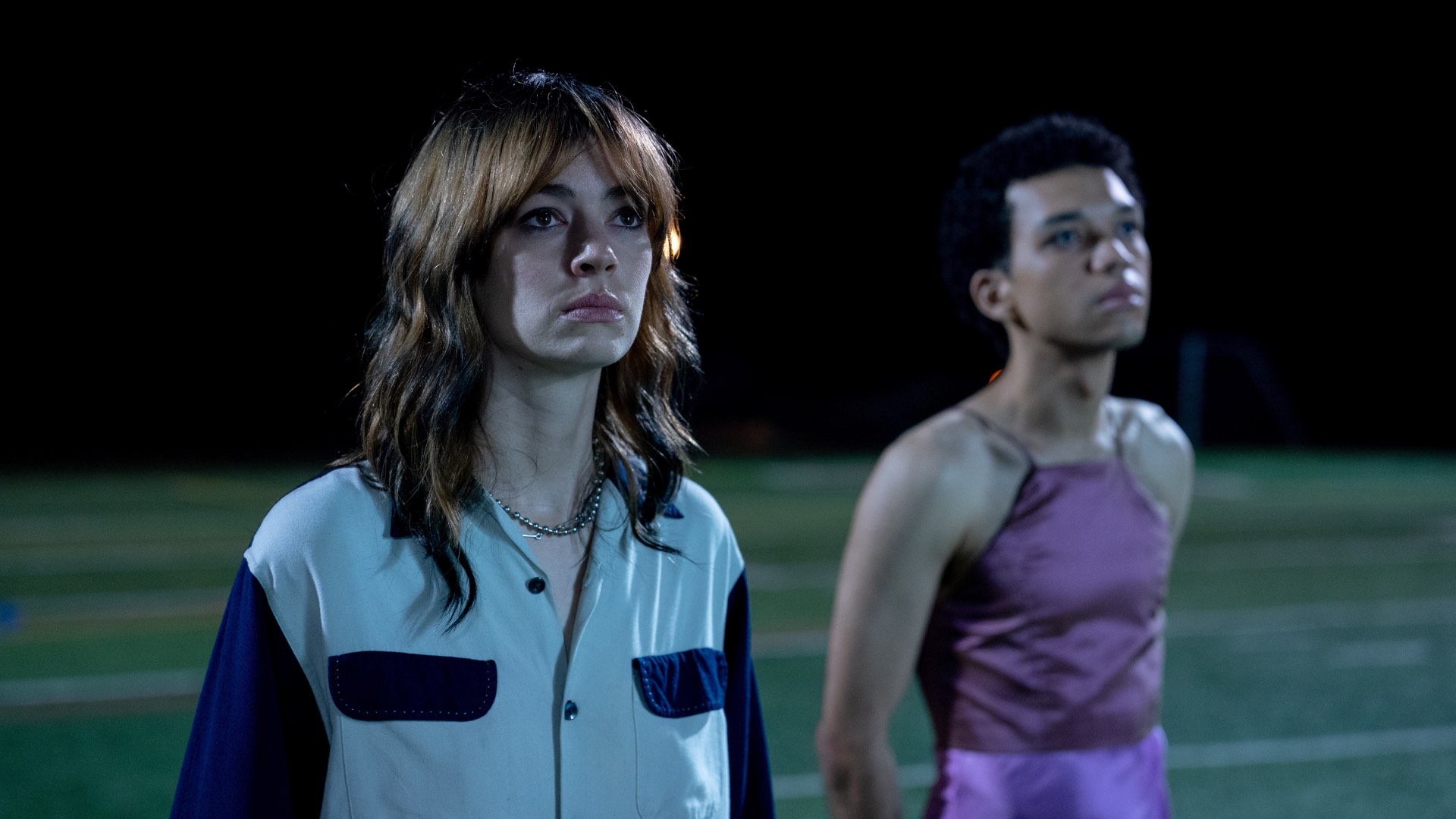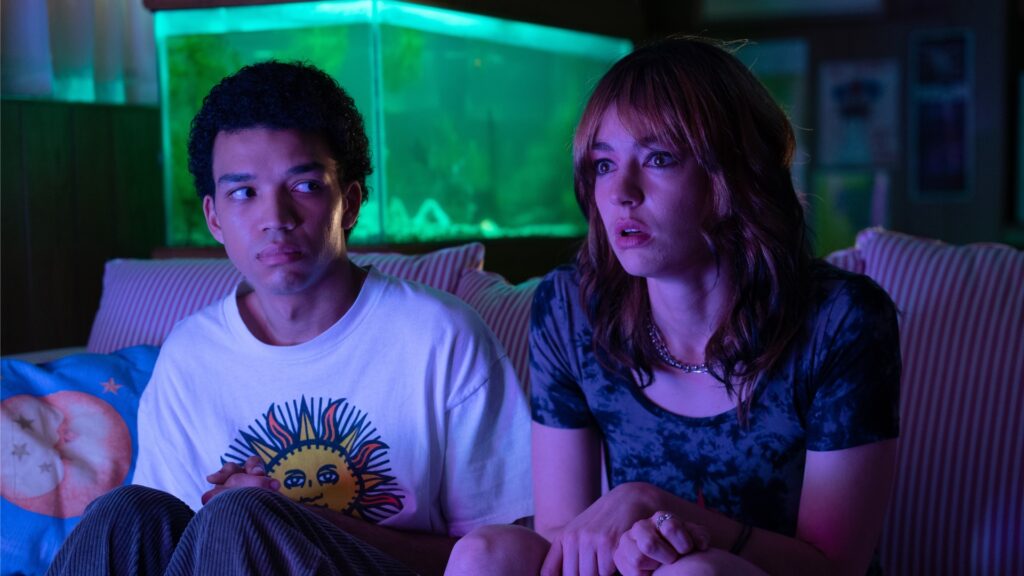Here’s why I Saw the TV Glow is essential viewing this International Transgender Day of Visibility
One of the most critically-acclaimed movies of 2024 was criminally shut out of awards season just gone. But this Monday 31 March 2025 is the perfect day to honour it anew...

Jack Whitehall in Jungle Cruise, Josh Gad in Beauty and the Beast; there should be a special Razzie for films that talk the talk on queer content, only to offer something so insultingly thin, you miss it in the blink of an eye. Then again, from the meta-commentary of Bros to the smug, tone-deaf moralising of Stonewall, we’re not always enamoured by the opposite approach, either.
Step forward 90s-set psychological horror I Saw the TV Glow, about two moody teens whose shared obsession with a Buffy-style TV show named The Pink Opaque follows them into adulthood. (God help you if you were the star of this film; the TV show in question your teen fave, and so on. Mine was Absolutely Fabulous, FYI.) It’s the first film in living memory to turn subtlety around LGBTQ themes – specifically, in this case, gender-diversity – into a super power.

This writer, despite being a fairly experienced journalist specialising in queer cinema, was one of many who initially failed to join the dots, declaring on first viewing: “How was that an LGBTQ film?!” Not that I was ever disappointed, so throughly intoxicated was I by the film’s grungy score and trippy visual language, all eerie neon colours and grainy analogue references. Not to mention the transfixing intensity of Jack Haven and Justice Smith: two TV addicted outsiders whose square eyes take them full-on Alice Through the Looking Glass, or Samara from The Ring in reverse.
I consumed the film with inexplicable fascination anyway, allowing its wider themes of teen alienation and the soul-destroying consequences of a life lived inauthentically, to seep in. When the film’s message finally clicked on second viewing, I was forever changed.
Jake Haven on LGBTQ horror fans
“The crossover, it’s a Venn diagram like this [puts a circled hand over a circled hand]. There’s a slither on the outside of each one! Horror is a genre that speaks to the root of queerness, to feelings of dissonance, of terror, and physical angst. One of my favourite movies of all time is the original Texas Chain Saw Massacre. I definitely, and I know a lot of people do, consider it a queer film, because you watch and you just… Tobe Hopper, he made it in response to the Vietnam War. But I think it also speaks to our understanding of all the lies we’re being told as a cis, straight society. When I watch that film I just want to crawl out of my skin. I literally can’t sit still while I’m watching it. I run all around the room. That’s how I feel when I’m in a business meeting, or like, a straight environment!”
I’d call it a Trojan Horse effect, but fear that would cast director Jane Schoenbrun as manipulative, and besides, on third viewing, its queerness was plain as day. For this viewer, Glow‘s transness is both hyper-specific and metaphorical, making it potentially accessible for anyone, prompting questions about the parts of ourselves we really ought to accept, and pronto, because life is short. “It’s eggs cracking after eggs cracking,” concurred the film’s star Jack Haven in an interview with Attitude earlier this year. It really is.
Despite modest success on arrival, feverish word-of-mouth enthusiasm has seen Glow‘s influence, particularly among those whose relationship with their queerness in unreconciled, grow exponentially. It’s already a cult LGBTQ classic, but for our money, it could become to horror what The Shawshank Redemption or Amélie are to gritty dramas and romantic comedies – a universally respected example of its genre that no one saw coming. And one that just happens to be queer.
